Filter by

Mediale Affektökonomie Emotionen im Reality TV und deren Kommentierung bei …
Wie werden in Reality TV-Formaten ausgehandelte Regeln des emotionalen Ausdrucks und deren Inszenierung auf Facebook bewertet? Welche unterschiedlichen Orientierungen in Bezug auf andere Körper entstehen dabei? Wie werden dadurch Zugehörigkeitsgefühle erzeugt oder Ausschlüsse vorgenommen? Mit dem Konzept der medialen Affektökonomie beschreibt Claudia Töpper, wie Emotionen in digitalen ver…
- Edition
- -
- ISBN/ISSN
- 9783839457023
- Collation
- -
- Series Title
- -
- Call Number
- -

Mediação & midiatização
Este livro aborda os conceitos de Mediação e Midiatização, levando em consideração suas limitações, potencialidades, articulações e contribuições para as análises dos processos comunicacionais contemporâneos. Divide-se em duas partes: Mediação e midiatização: conexões epistemológicas, que discute aportes teórico-metodológicos e conceitos-chave da área, e Percursos investi…
- Edition
- -
- ISBN/ISSN
- 9788523212056
- Collation
- -
- Series Title
- -
- Call Number
- -
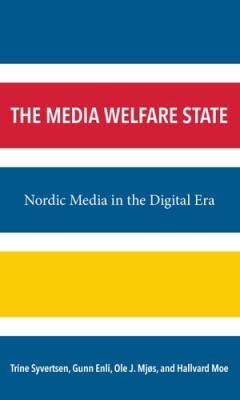
The Media Welfare State Nordic Media in the Digital Era
The Media Welfare State: Nordic Media in the Digital Era comprehensively addresses the central dynamics of the digitalization of the media industry in the Nordic countries—Sweden, Norway, Denmark, Finland, and Iceland—and the ways media organizations there are transforming to address the new digital environment. Taking a comparative approach, the authors provide an overview of media institu…
- Edition
- -
- ISBN/ISSN
- 9780472900213
- Collation
- -
- Series Title
- -
- Call Number
- -
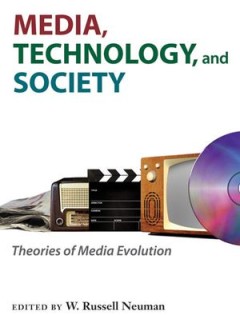
Media, Technology, and Society Theories of Media Evolution
In Media, Technology, and Society , some of the most prominent figures in media studies explore the issue of media evolution. Focusing on a variety of compelling examples in media history, ranging from the telephone to the television, the radio to the Internet, these essays collectively address a series of notoriously vexing questions about the nature of technological change. Is it possible to …
- Edition
- -
- ISBN/ISSN
- 9780472900381
- Collation
- -
- Series Title
- -
- Call Number
- -
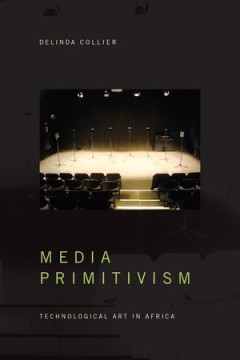
Media Primitivism Technological Art in Africa
In Media Primitivism Delinda Collier provides a sweeping new understanding of technological media in African art, rethinking the assumptions that have conceptualized African art as unmediated, primary, and natural. Collier responds to these preoccupations by exploring African artworks that challenge these narratives. From one of the first works of electronic music, Halim El-Dabh’s Ta’abir A…
- Edition
- -
- ISBN/ISSN
- 9781478090434
- Collation
- -
- Series Title
- -
- Call Number
- -
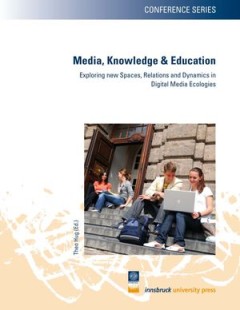
Media, Knowledge & Education Exploring New Spaces, Relations and Dynamics in…
In recent years, new and established media have penetrated, challenged, and often surpassed in significance traditional institutions of socialization and education. Moreover, the social organization of knowledge production and distribution has become highly mediated through increasingly complex combinations of information and communication technologies. The papers in this volume are exploring i…
- Edition
- -
- ISBN/ISSN
- 9783902571670
- Collation
- -
- Series Title
- -
- Call Number
- -
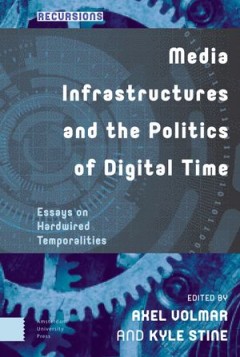
Media Infrastructures and the Politics of Digital Time Essays on Hardwired T…
Digital media everyday inscribe new patterns of time, promising instant communication, synchronous collaboration, intricate time management, and profound new advantages in speed. The essays in this volume reconsider these outward interfaces of convenience by calling attention to their supporting infrastructures, the networks of digital time that exert pressures of conformity and standardization…
- Edition
- -
- ISBN/ISSN
- 9789048550753
- Collation
- -
- Series Title
- -
- Call Number
- -
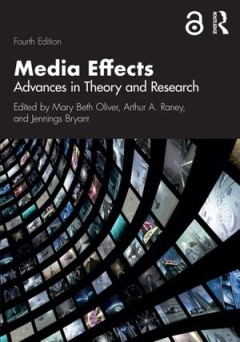
Media Effects Advances in Theory and Research
Now in its fourth edition, Media Effects again features essays from some of the finest scholars in the field and serves as a comprehensive reference volume for scholars, teachers, and students. This edition contains both new and updated content that reflects our media-saturated environments, including chapters on social media, video games, mobile communication, and virtual technologies. In reco…
- Edition
- -
- ISBN/ISSN
- 9780429957024, 0429957025
- Collation
- -
- Series Title
- -
- Call Number
- -
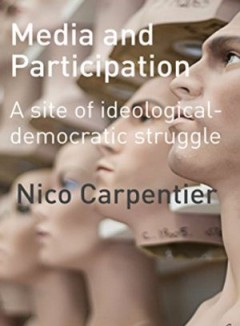
Media and Participation A site of ideological-democratic struggle
Participation has become fashionable again, but at the same time it has always played a crucial role in our contemporary societies, and it has been omnipresent in a surprisingly large number of societal fields. In the case of the media sphere, the present-day media conjuncture is now considered to be the most participatory ever, but media participation has had a long and intense history. To dea…
- Edition
- -
- ISBN/ISSN
- 9781841504070
- Collation
- -
- Series Title
- -
- Call Number
- -
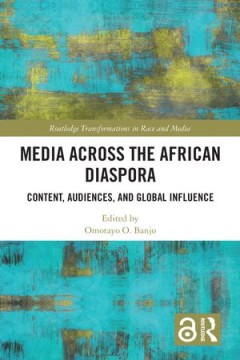
Media Across the African Diaspora Content, Audiences, and Influence
This volume gathers scholarship from varying disciplinary perspectives to explore media owned or created by members of the African diaspora, examine its relationship with diasporic audiences, and consider its impact on mainstream culture in general. Contributors highlight creations and contributions of people of the African diaspora, the interconnections of Black American and African-centered m…
- Edition
- -
- ISBN/ISSN
- 9781351660204, 1351660209
- Collation
- -
- Series Title
- -
- Call Number
- -
 Computer Science, Information & General Works
Computer Science, Information & General Works  Philosophy & Psychology
Philosophy & Psychology  Religion
Religion  Social Sciences
Social Sciences  Language
Language  Pure Science
Pure Science  Applied Sciences
Applied Sciences  Art & Recreation
Art & Recreation  Literature
Literature  History & Geography
History & Geography